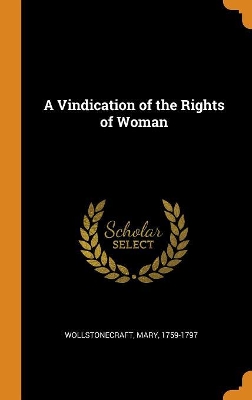Cambridge Library Collection - British & Irish History, 17th & 18th Centuries
2 total works
After considering the historic page, and viewing the living world with anxious solicitude, the most melancholy emotions of sorrowful indignation have depressed my spirits, and I have sighed when obliged to confess, that either nature has made a great difference between man and man, or that the civilization which has hitherto taken place in the world has been very partial. I have turned over various books written on the subject of education, and patiently observed the conduct of parents and the management of schools; but what has been the result?- a profound conviction that the neglected education of my fellow-creatures is the grand source of the misery I deplore; and that women, in particular, are rendered weak and wretched by a variety of concurring causes, originating from one hasty conclusion. The conduct and manners of women, in fact, evidently prove that their minds are not in a healthy state; for, like the flowers which are planted in too rich a soil, strength and usefulness are sacrificed to beauty; and the flaunting leaves, after having pleased a fastidious eye, fade, disregarded on the stalk, long before the season when they ought to have arrived at maturity.- One cause of this barren blooming I attribute to a false system of education, gathered from the books written on this subject by men who, considering females rather as women than human creatures, have been more anxious to make them alluring mistresses than affectionate wives and rational mothers; and the understanding of the sex has been so bubbled by this specious homage, that the civilized women of the present century, with a few exceptions, are only anxious to inspire love, when they ought to cherish a nobler ambition, and by their abilities and virtues exact respect.
A Vindication of the Rights of Men, in a Letter to the Right Honourable Edmund Burke
by Mary Wollstonecraft
Published 28 October 2010
Mary Wollstonecraft (1759-1797) published A Vindication of the Rights of Men anonymously in 1790. The pamphlet sold out within three weeks to great acclaim, though later editions published under her own name met with notable opprobrium. It was the first of many printed responses to Edmund Burke's conservative attacks on the French Revolution, and it marked Wollstonecraft's entry into the intellectual arena of the late eighteenth century. She attacked hereditary privilege and political conservatism, arguing for codified civil rights and political liberty. She also highlighted Burke's gendered language and criticised his silence on the plight of women. Wollstonecraft has inspired reverence and revulsion alike, for both her work and her lifestyle. Her prescience and nonconformity, however, have secured her position in the canon of distinguished eighteenth-century political thinkers. For more information on this author, see http://orlando.cambridge.org/public/svPeople?person_id=wollma

